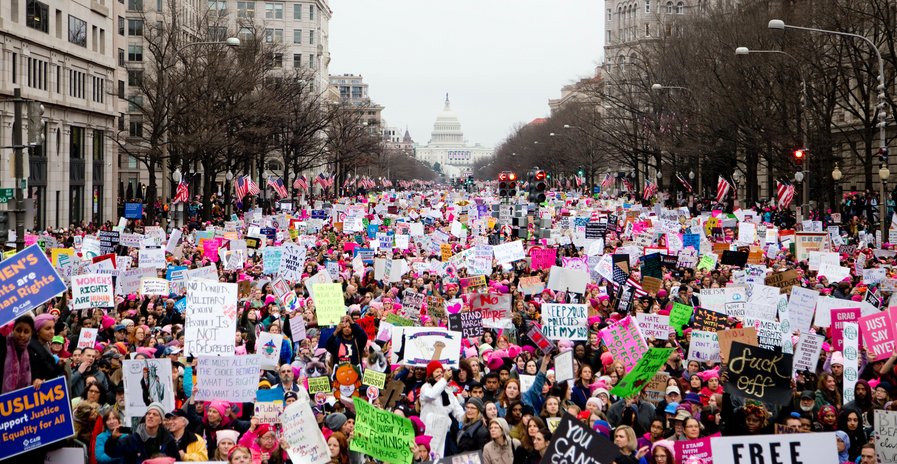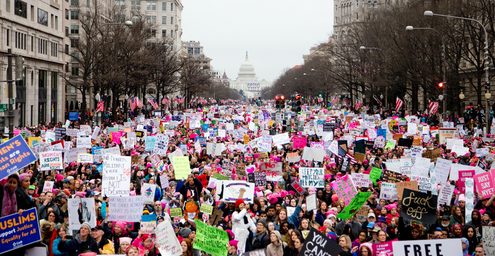March comes with the recognition of all the powerful girl bosses that inspire future generations. I love having the opportunity to read about female rappers, artists, writers, and historical icons that I didn’t know about before. I think Women’s History Month appears to be a beacon of progress and inclusivity for an underrepresented culture.
It’s powerful, yes. But it’s also a disturbing way of popularizing performative feminism.
We’ve recognized female rappers but haven’t given women the right to their bodies. We’ve put more women in advertisements, but women still make 84 cents for every dollar that a man makes. And let’s not even get started on the inequality that women of color face.
A lot of the time, Women’s History Month blocks important change. By saying, “But we’re celebrating women this month!”, Congress gets a cop-out from enacting real changes and laws that our society needs.
In 1987, Women’s History Month was officially declared as an annual celebration meant to recognize and celebrate women. Well, we’ve recognized them. Now, are we going to start supporting them? Are we going to foster change? Or do we need to choose another month for that?
It can get contradictory sometimes because it feels like we should just relish the rare victories that we do get. It doesn’t matter why women are in advertisements, just that little girls can have someone to look up to who looks like them. It doesn’t matter. But doesn’t it?
I’m not saying that the recognition isn’t nice. I’m saying we need to take more steps forward, but we’re blocked by Women’s History Month. We cram all our support and encouragement into 31 days, then move on with our lives. Women don’t just exist in March.
We memorize the names of famous suffragists, but we aren’t encouraged by them because we are not taught to be. The curriculums center around women in March as if women haven’t done anything worthy of discussing outside of that month. Women’s history is still history. And it’s still alive today, like with the transition between female leaders of the Civil Rights Movement to female leaders of the Black Lives Matter movement.
Women’s History Month is sometimes not even about the women. Dare I say it becomes about the men? Women take on the burden of educating men on how to treat them. Then, they accept the unfair (and sometimes even violent) treatment because they didn’t educate the men correctly, as if that’s a woman’s job. It doesn’t matter if a man is supporting women. We shouldn’t spend this time congratulating men who don’t suck. Again, it proves that the month was never about supporting women.
Women also don’t only exist when they’ve done something remarkable. One of the biggest flaws of the month is that we tend to focus only on women who have done something noteworthy. While we owe so much of our success and progress to the female trailblazers of the past, it’s still important to acknowledge today’s women who deal with struggles and triumphs. We should be recognizing single mothers, trans women, female leaders, women with disabilities, and women of color.
Beyond recognition, we need to begin making tangible changes. We need to address the systemic dysfunction that doesn’t let women succeed. We need to give women equal opportunities in the workplace, better education, and systems that support them as women, instead of just brushing off their struggles with sexism as “boys will be boys.”
It doesn’t even need to come in the form of huge changes, though that is the ideal. We can always start small, like with the constant microaggressions that women face.
- If a woman is upset, she’s not on her period or hormonal. She’s upset.
- She doesn’t owe you a smile.
- She’s not bossy. She’s powerful.
If we use the same language to define women as we do men, we already begin to even the playing field. Eventually, we can get to the point where we don’t have to work extra hard just to be heard. But it won’t happen with a photoshopped photo and a tweet saying “Look at this woman in my life. #Women’sHistory.”
When it comes to Women’s History Month, ask yourself: Do I want to support women, or do I want to look like I support women? And if I want to support women, how can I change the narrative? Maybe we can start by simply admitting that we can do better.
Want to see more HCFSU? Be sure to like us on Facebook and follow us on Instagram, Twitter, TikTok, and Pinterest!


